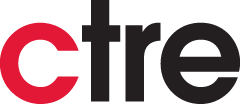Project Details
18-672, TR-761
10/01/18
11/11/19
Iowa Department of Transportation
Iowa Highway Research Board
Researchers
Paul Wiegand
About the research
With more than 900 cities in the state, the level of communication regarding urban public works issues is lacking. The Iowa Chapter of the American Public Works Association (APWA) provides information through their conference programs and a limited listserv. The Iowa League of Cities also addresses municipal activities. However, no specific organization is set up to communicate and address urban public works activities in Iowa.
The Iowa County Engineers Association (ICEA) Service Bureau is an excellent example of how a service bureau provides value to their users. The ICEA Service Bureau provides a system for county engineers to communicate among themselves and with the Iowa Department of Transportation (DOT), as well as maintain databases of information that can be utilized to provide statewide county information.
Because cities do not have a corresponding organization, they are at a disadvantage when information is needed to justify changes in financing or regulatory issues related to streets and other public works issues. Individual municipalities are able to provide information for their agency, but a system does not exist for cities of all sizes to input information and have it accumulate so that a more complete picture of urban issues can be presented. An urban service bureau would provide a mechanism to become conscious of and respond to emerging issues in a more efficient and effective manner.
This report details the feasibility study activities for developing, financing, and operating an urban service bureau. A diverse technical advisory committee (TAC) was formed to guide the study. The committee included representatives from cities of all sizes from across the state, the ICEA Service Bureau, Iowa Local Technical Assistance Program (LTAP), the Iowa League of Cities, county engineers, the Iowa DOT Local Systems Bureau, and engineering consultants.
After responses to a questionnaire sent to Iowa cities showed support for a city-level service bureau, a majority of the TAC endorsed a plan to move forward with developing such an organization within the existing Iowa Statewide Urban Design and Specifications (SUDAS) program at Iowa State University.
